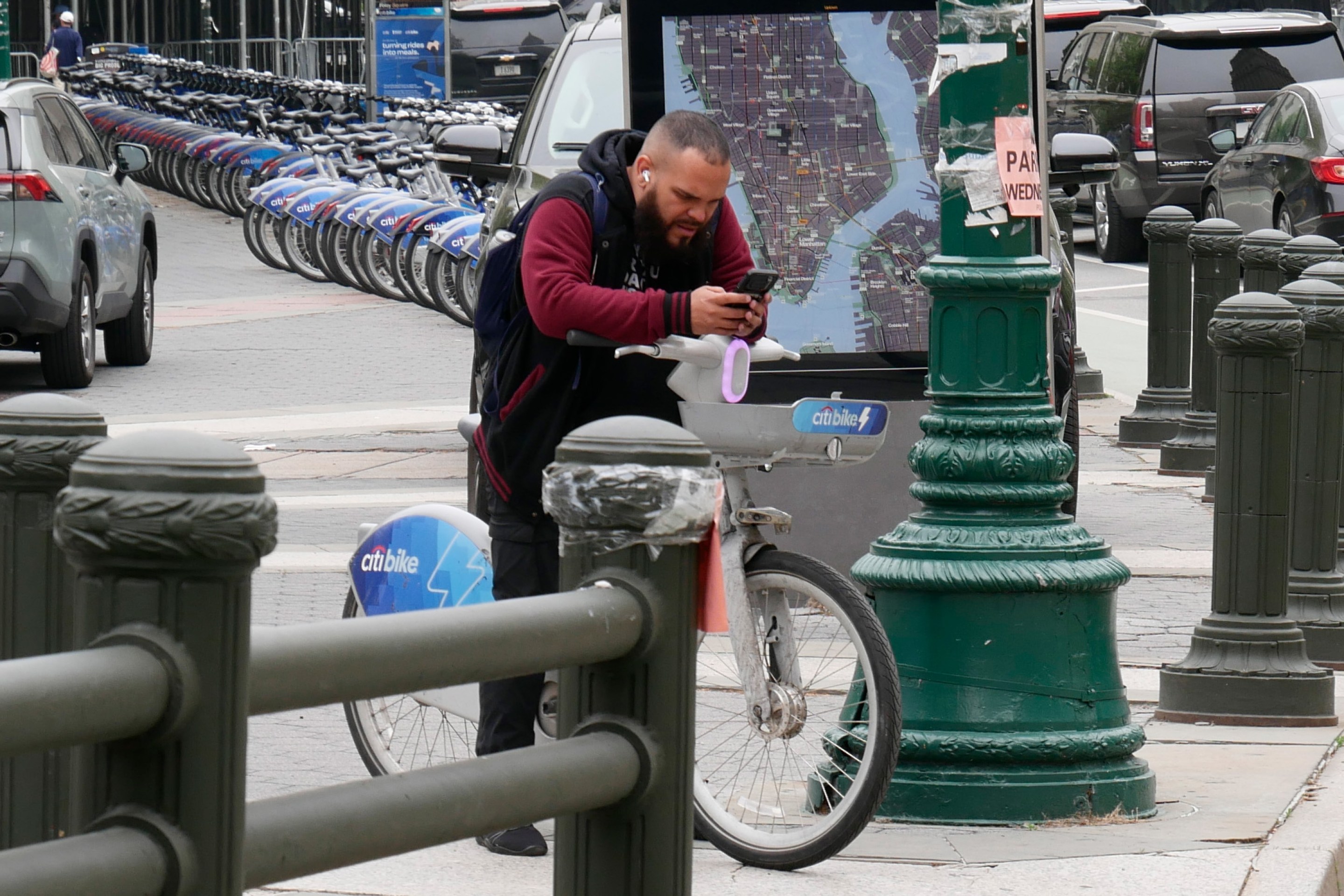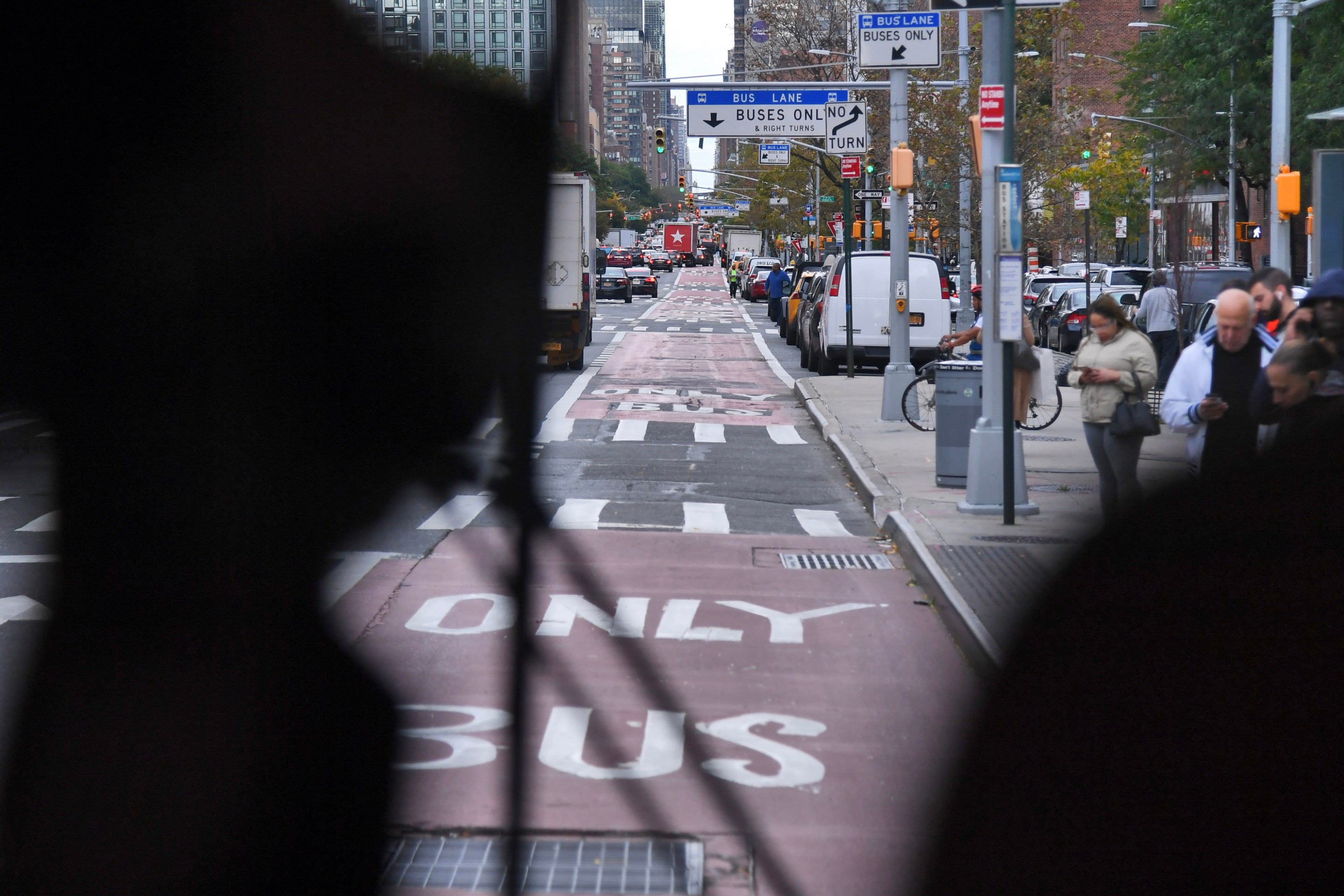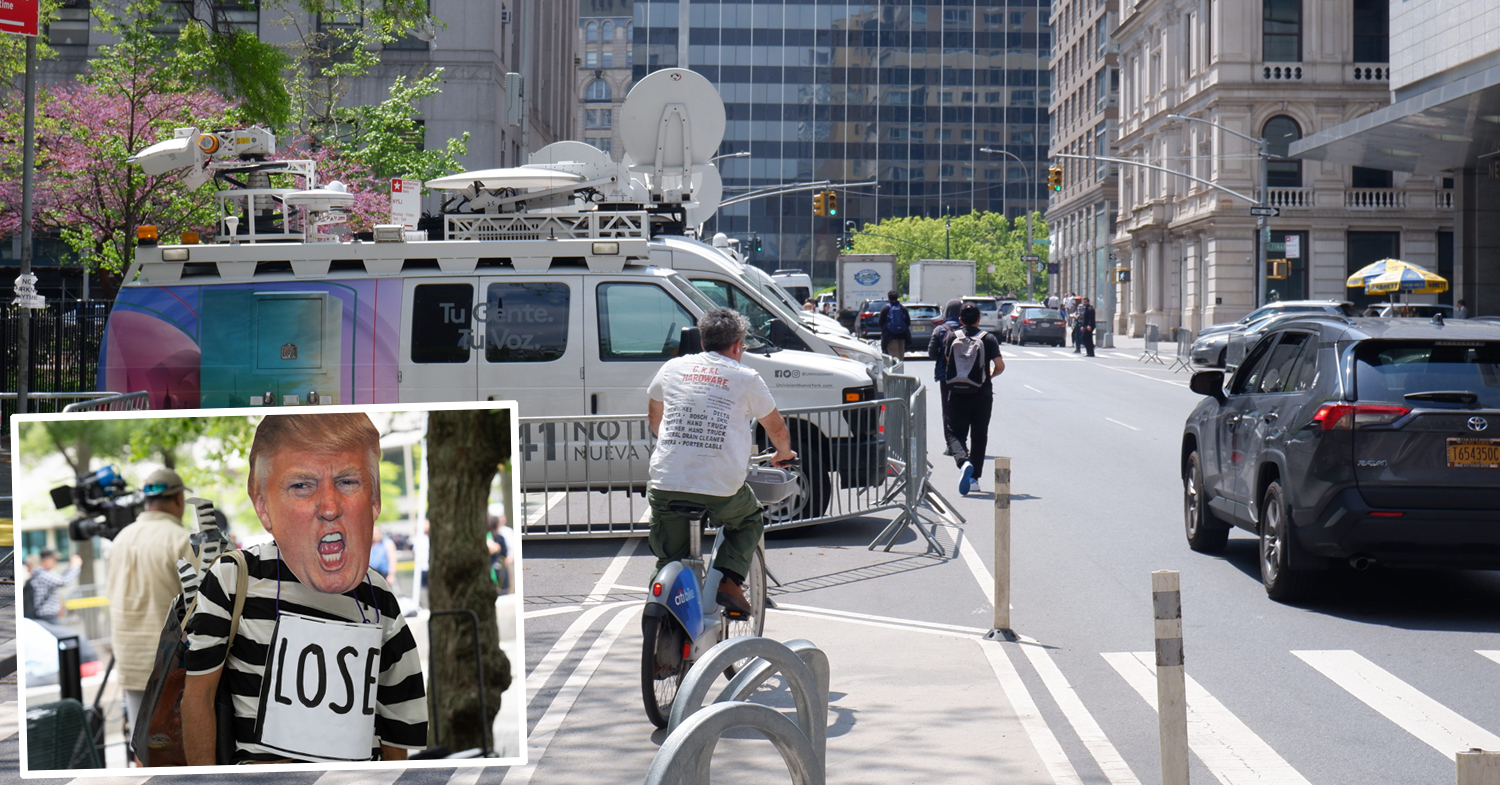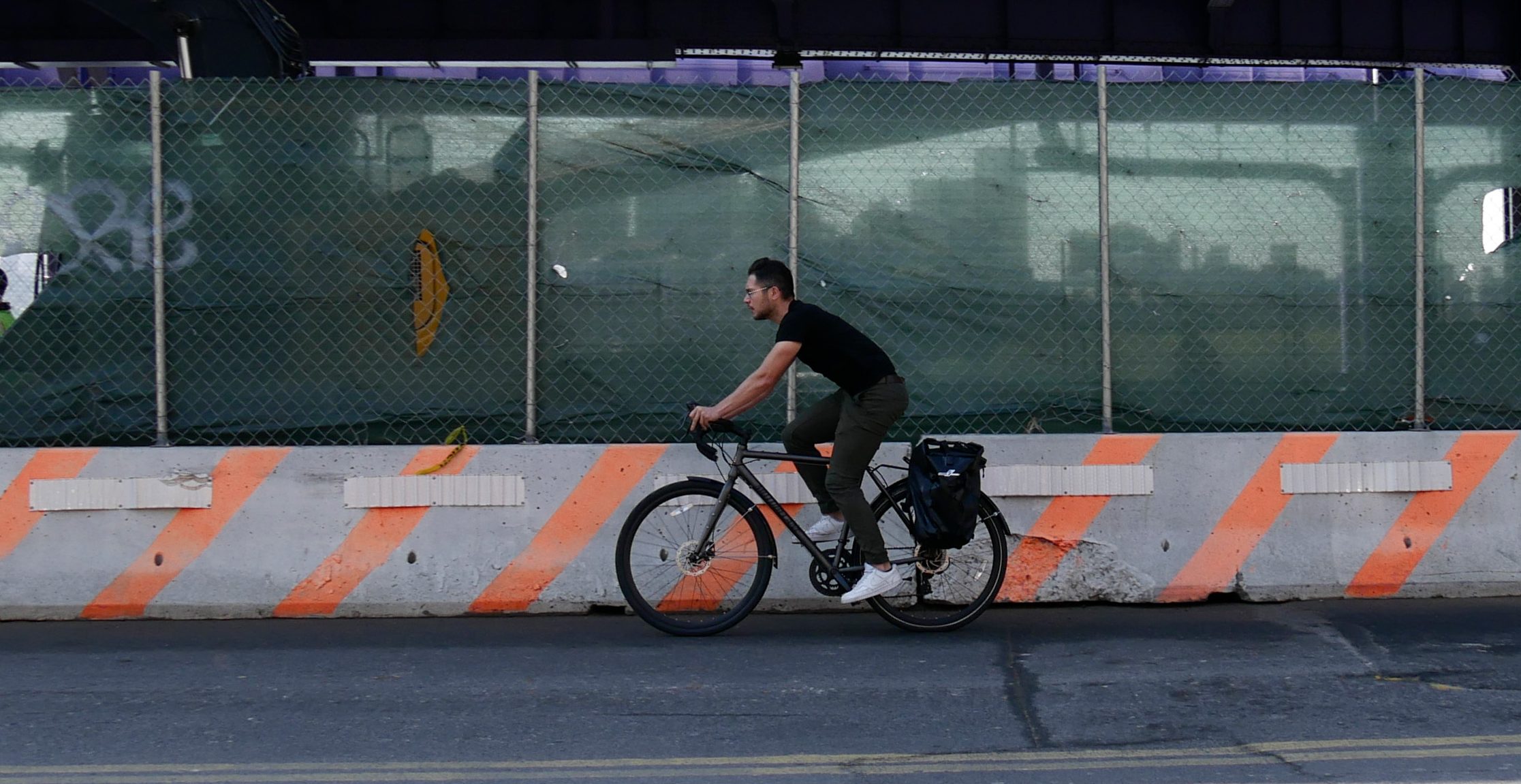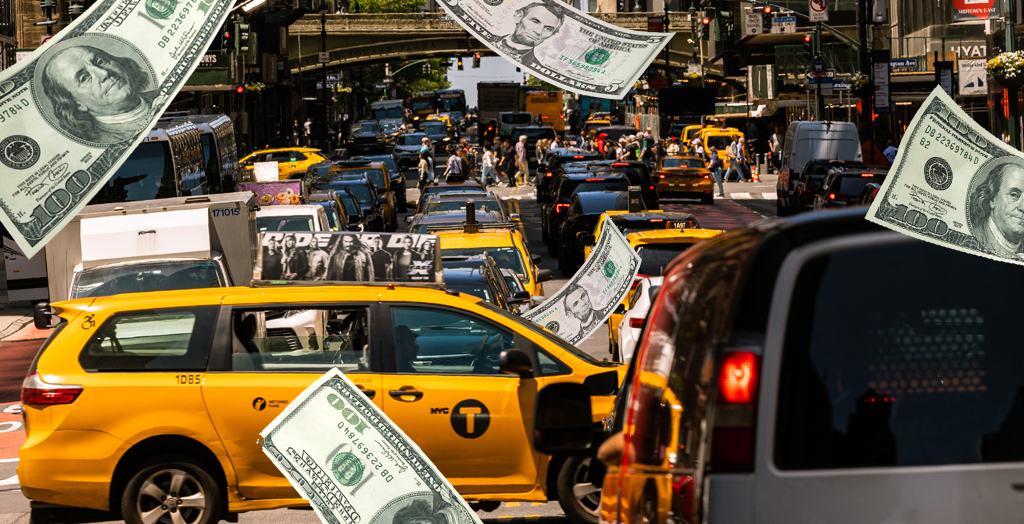Feds Give MTA Final Blessing To Congestion Pricing
4:38 PM EDT on May 5, 2023
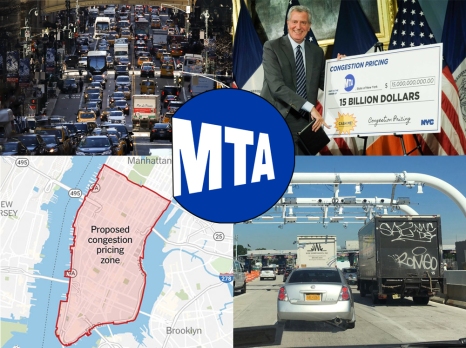
It’s time to get congestion pricing’s nuts and bolts in order.
Is it the beginning of the end or the end of the beginning?
The Federal Highway Administration on Friday told the MTA that its environmental assessment for congestion pricing was ruled sufficient, Streetsblog has learned — setting up a long-awaited “finding of no significant impact” (FONSI) for congestion pricing, the last federal hurdle before the MTA can establish a toll for driving south of 60th Street in Manhattan.
“The Federal Highway Administration did this afternoon issue their letter of sufficiency to the MTA and the Department of Transportation,” a source said. “That triggers a 30-day public review period on the final EA and its a step towards a FONSI.”
The FHWA reviewed all public comments concerning congestion pricing from August and September 2022, and determined that the final environmental review addressed those comments, plus other environmental impacts, and, more important, specified how those impacts, including those on environmental justice communities, could be mitigated below significant levels, according to a copy of the letter obtained by Streetsblog.
With the letter, the MTA can now make public its final environmental assessment, which now includes public comments and feedback the agency got when the draft EA first came out. According to an FHWA spokesperson, the MTA is now cleared to share its final environmental assessment, and a draft Finding of No Significant Impact for a 30-day public notice.
Because the EA found that highways running through the Bronx and Staten Island might draw more car and truck traffic from drivers trying to avoid the toll in Manhattan, the study said that the additional traffic would worsen air quality in neighborhoods near highways. Although the EA did not predict that the air quality impacts would violate federal health standards, the MTA still promised to use congestion pricing funds to do things like upgrade diesel-powered refrigeration trucks in Hunts Point to electric ones and upgrade air filters in schools near highways.
"Congestion pricing is a generational opportunity to make it easier for people to get around in, and get to, the Central Business District, by reducing traffic and funding improvements to the public transit system," MTA Chief of External Relations John McCarthy.
"To do it right, environmental equity has been an integral component. We are grateful that the FHWA has acknowledged the Project Sponsors’ efforts to date and has found the document has met the standards for legal sufficiency."
The forthcoming FONSI is a victory for the agency after a years-long struggle with the federal government that lasted for two presidents, two governors, three lieutenant governors, two MTA chairs, two mayors and the changing of the prestige television guard from Game of Thrones to Succession.
The latest missive from the federal government signals the end of federal oversight of the traffic toll, and puts the execution of the project firmly in the hands of New York City, New York State and the Traffic Mobility Review Board, the six-member body that will hold public hearings to determine things like the actual price of the toll and who might be exempt from it.
"I call this the end of the beginning," said Jon Orcutt, a former city Department of Transportation official. "Now the city and state and MTA really have to do it, and the TMRB has to meet and decide on prices, exemptions and map out implementation."
State leaders said that they were ready and able to do just that.
"Governor Hochul is committed to implementing congestion pricing to reduce traffic, improve air quality, and support our public transit system," said John Lindsay, a spokesperson for the governor. "The finding of legal sufficiency is a critical step that will allow our Environmental Assessment to be publicly available for anyone to read, and we will continue to work with our partners to move congestion pricing forward."
Once the FONSI is issued, Transcore, the vendor handling the installation of the tolling infrastructure will have 310 days to complete its assignment.
Congestion pricing was passed by the state legislature all the way back in 2019 and was pitched as a way to fund the 2020-2024 capital plan, but the MTA had to seek permission from the federal government to actually levy the traffic toll because some roads that run through New York City were built with federal money, and states can't toll the federal highway system without permission from Washington.
Shortly after the state legislature made congestion pricing state law, the MTA asked the federal Department of Transportation, led then by Trump appointee Elaine Chao, what kind of environmental study would satisfy the federal government's concerns, a faster environmental assessment or a much more thorough environmental impact statement. What the MTA thought would be a brief wait was turned into a Waiting for Godot-esque nightmare of bureaucratic indifference and hostility, as the Trump administration sat on the question until the former president was mercifully bounced from office.
President Biden's DOT allowed the MTA to move forward with an environmental assessment with what the agency called "enhanced coordination and public involvement" with both New Jersey and Connecticut. The EA officially began in late August 2021 and was supposed to take 16 months to complete. However, after the first round of public commentary, that schedule got pushed back because of what Lieber said at the time was an overbearing amount of scrutiny from the federal government. As an example, he said that the Federal Highway Administration demanded the MTA study the air quality and traffic effects the toll would have as far away as the Philadelphia suburbs.
The process that was supposed to end sometime in December 2022 was pushed back to January or February 2023, which also meant that the MTA didn't think the toll would be in place until at least the second quarter of 2024, an excruciating three years after the toll was supposed to start in January 2021. At the same time, the agency has missed out on billions of dollars for its capital plan, since the toll was supposed to raise $1 billion in revenue that would then be bonded out to $15 billion in capital spending.
Transit advocates were, needless to say, pleased.
"This is the best Friday afternoon news dump ever," said Riders Alliance Executive Director Betsy Plum. "After years of delays, which transit riders are all too familiar with, the federal government has finally decided that millions of New Yorkers, commuters, and visitors to our city can have nice things after all.
"Now Gov. Hochul has all the power she needs to raise the money to fix our subway and deliver the reliable and accessible service every New Yorker deserves. The case for congestion pricing, with all of its benefits, could not be stronger than it is today."
Lisa Daglian, the executive director of the Permanent Citizens Advisory Committee to the MTA, called the letter "a significant step forward for our region’s health and the wellbeing of our transit system.
"Congestion pricing ... will mean less traffic, better air quality and reap billions of dollars to improve the MTA’s signals and stations, improve accessibility, buy new rolling stock, and build big things like the next phase of the Second Avenue Subway and bring Metro-North into Penn Station. Where New York leads, others will follow," she said.
Dave Colon is a reporter from Long Beach, a barrier island off of the coast of Long Island that you can bike to from the city. It’s a real nice ride. He’s previously been the editor of Brokelyn, a reporter at Gothamist, a freelance reporter and delivered freshly baked bread by bike. Dave is on Twitter as @davecolon. Email Dave Colon at dcolon@streetsblog.org
Stay in touch
Sign up for our free newsletter
More from Streetsblog New York City
Good Luck Docking Your Citi Bike In Lower Manhattan
Many frustrated commuters to Lower Manhattan opted to simply abandon their Citi Bikes undocked due to the lack of open spots in the area.
Wednesday’s Headlines: ‘ACE’ in the Hole Edition
The MTA approved a $141-million contract to put hundreds of new automated traffic enforcement cameras on buses. Plus more news.
Trump Trial Street Closures Push Pedestrians, Cyclists into Busy Traffic
News vans have dangerously blocked the sidewalk and bike lane on Lafayette Street daily since Donald Trump's trial began nearby two weeks ago.
Eyes On The Street: Coastal Resiliency Causes Mess For Pedestrians and Cyclists
Unfortunately for cyclists and pedestrians, this situation won't be fixed until "at least 2026.”
State Pols Still Haven’t Spent Millions Alloted for Transit as Congestion Pricing Looms
There's like $45 million sitting there — unspent — for outer borough transit improvements. What are state pols waiting for?
